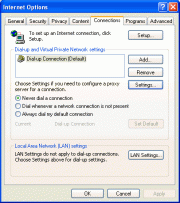Hope you all remember Jon Burton’s invitation in his article “30 years in English language teaching” to share the memories of the greatest changes in our professional life and Mojca Belak’s response in her blogpost entitled “The greatest changes in my professional life”. The inspiration behind this article is the blogpost by Mojca.
When I started my teaching career in a college in Kerala, India in 2002 chalks and blackboards were giving way to markers and white boards. The huge cassette recorder and cd player in the department of English had a tremendous role in providing a Bachelors in Functional English. The teachers were allowed to use it when their turn come once in a couple of days. I was handling the history of English literature and Phonetics and this machine had a major function in the language lab. I played the cassettes and CDs by the British Council in order to teach them the sounds. It was really hard to teach the sounds and accent in connected speech as we had only little practical experience with English speaking people at that time. But I tried my level best and recorded students’ responses on a cassette and played them back in the same period for peer review.
I remember, we got a dial-up internet connection in the same year with a speed of 10kbps. An internet connection was a dream of all teachers and students of the college. With that connection, it took nearly 10 to 15 minutes to get the meaning of an unfamiliar English idiom, but we still all eagerly waited in front of the computer. In two or three years the speed of the internet was increased to 100kbps. Gradually we could make audio calls to teachers in different countries over Yahoo Messenger and Skype. Later, I quit the job of a college lecturer and joined a Government school as a high school teacher. High school was the best place for me! It was really a novel thing to get connected with English speakers online. The students were eagerly waiting for someone online in my period. Gradually my position has changed from a traditional language teacher to a facilitator who could connect the class with the world. By 2010, internet has got a higher speed and we began to conduct webinars. It was not easy to run a webinar in those days as we had to give training to the participants and presenters. Stephen Herder and Barbara Hoskins Sakamoto of International Teacher Development Institute (iTDi) helped me in this regard. Super speed broad band connections are helping the whole ELT world to get connected, but still sometimes the act of conducting webinars was (being) criticized. The parents were anxious about online classes because of the problems like mobile phone addiction and screen addiction. I can say my students have also changed in two decades. They seem to be more independent and confident in using English.
COVID-19 has changed everything. Now no one is blaming the teachers for using Whatsapp or Zoom/Google Meet for the entire teaching learning process. There’s no problem with screen addiction. We gave all lessons through television in the academic year 2020-2021. Classes are available on YouTube too. The students and parents are free to contact the teacher via social media or over phone and ALL are waiting for the new ‘covid-less’ world.
About Syke Annamma Kumaran
Syke Annamma Kumaran, a Committee Member of IATEFL (MemCom) is a teacher, writer and a presenter. He is a Fulbright alumnus (Claremont Graduate University, California) and currently works as a High School Teacher at Govt. H.S.S. Chorode, Kerala. He has given talks across the globe and received IATEFL Ray Tongue Scholarship in 2016. Furthermore, he is a Mentor for the International Teacher Development Institute (iTDi). He has been teaching English for over 19 years in schools and colleges in India and the U.S.
Contribute to the blog
If you are a member of IATEFL and would like to contribute to the blog, we’d love to hear from you at [email protected] or [email protected]. We’re looking for stories from our members, news about projects you’ve been involved in, and anything else you think those connected to English language teaching would be interested in reading. We look forward to hearing from you! If you’re not a member, why not join us?

